
This post may contain affiliate links and we may receive compensation if you purchase products linked to below. As an Amazon Associate, we can earn from qualifying purchases. Please see our Terms and Conditions for details.
Ah, there’s nothing quite like the sweet sound of a trumpet! But behind every melodious note lies the unsung hero: valve oil.
If you’ve ever struggled with a sticky valve or wondered why some trumpet players swear by a particular brand of oil, you’re in the right place. In this guide, we’ll dive deep into the best trumpet valve oils, why using the right one is crucial and how you can make an informed choice.
Before we get into the details of why choosing the right oil for you is such a big deal, let’s cut right to our ranking of the top oils. I’ll give a more thorough analysis of each of our top choices, and other too, further down the article. But here’s a quick summary of my top picks:
| Brand | Photo | Ranking | Where to Buy |
|---|---|---|---|
| Monster Valve Oil | 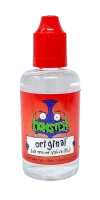 | Best overall | |
| Al Cass | 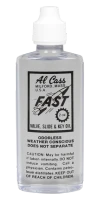 | Most popular | |
| MusicNomad MN703 | 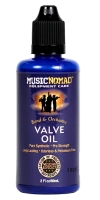 | Best on a budget |
Why trumpet valve oil is crucial
Valve oil isn’t just a luxury; it’s a necessity. Understanding the science and importance behind it can make a world of difference in your trumpet playing experience.
The science behind trumpet valve oils
Think of valve oil as the lifeblood of your trumpet. Just as our joints need lubrication to move smoothly, trumpet valves need oil to function optimally. Valve oil limits friction, ensures smooth valve action, and prevents wear and tear.
At its core, valve oil is designed to create a thin layer between the valve and the casing, reducing friction. This might sound simple, but there’s a lot of science involved. The right valve oil has a specific viscosity that allows it to flow smoothly without being too thick or too thin. It’s a delicate balance that ensures your trumpet valves move swiftly without any hitches.
The consequences of neglecting valve maintenance
Neglecting valve maintenance is like skipping regular oil changes for your car. Over time, dirt and debris can accumulate, causing valves to stick or become sluggish (related: Trumpet Valve Stuck? Here’s How to Fix It). This not only affects the playability of the trumpet but can also lead to more severe damage. Imagine being in the middle of a performance and having a valve freeze up on you—not a pleasant experience!
Signs of a trumpet in need of valve oil
If you’re new to the trumpet world, you might wonder, “How often should I oil my valves?” or “What are the signs that my trumpet needs oiling?” Here are a few telltale signs:
- Valves feel sluggish or sticky.
- The trumpet produces an inconsistent sound.
- You hear a squeaking noise when pressing the valves.
- The valves don’t return to their original position quickly.
Understanding trumpet valves
The trumpet valve is more than just a mechanical piece; it’s the heart of your instrument. Knowing its anatomy and the common issues players face can help you maintain it better (related: Parts of a Trumpet Explained).
Basic anatomy of a trumpet valve
Each valve has a piston that moves up and down inside a cylindrical casing. When you press a valve, it redirects the air flow through additional tubing, changing the pitch. The smoother the piston’s movement, the better the sound and the easier it is to play.
Common issues trumpet players face with valves
Every trumpet player, at some point, faces valve issues. Some common problems include:
- Sticking valves: Often caused by dirt or a lack of lubrication.
- Valve misalignment: This can happen if the valve is not correctly reassembled after cleaning.
- Slow valve action: Usually a result of using the wrong type or viscosity of valve oil.
The impact of climate and environmental factors on valves
Believe it or not, the environment plays a big role in how your trumpet performs. In colder climates, valve oil can thicken, causing sluggish valve action. Conversely, in hot and humid conditions, valves might become sticky. It’s essential to choose a valve oil that suits your local climate and to adjust your maintenance routine accordingly.
Criteria for choosing the best trumpet valve oil
Choosing perfect valve oil for your trumpet is not a one-size-fits-all scenario. Different trumpets, playing styles, and environments can all influence the best choice for you. Let’s break down the key criteria to consider when choosing the best trumpet valve oil:
Viscosity and why it matters
Viscosity refers to the thickness of the oil. Some oils are thin and runny, while others are thick and dense. The ideal viscosity ensures that the oil flows smoothly between the valve and its casing, providing just the right amount of lubrication.
Too thick, and the valve might become sluggish. Too thin, and it might not provide adequate protection. It’s all about striking that balance for your trumpet and playing conditions.
Longevity of the oil
No one wants to be re-oiling their trumpet every few hours. The longevity of the oil determines how often you’ll need to reapply.
Some premium oils offer longer-lasting lubrication, meaning you won’t need to oil your trumpet as frequently. This can be especially beneficial for you if you’re a professional player or someone who plays for extended periods.
Ingredient considerations: organic vs. synthetic valve oils
The debate between organic and synthetic oils is a long-standing one. Natural oils, derived from plants or animals, can provide excellent lubrication but might degrade faster. Most organic valve oils are made from petroleum.
Synthetic oils, on the other hand, are man-made and can offer consistent performance and longer shelf life. And many trumpet players suggest that synthetic oils will last longer, so you don’t need to oil your valves as often.
But some repair professionals claim that synthetic oils are more likely to leave a residue and discoloring on a horn if not cleaned regularly enough.
The choice often boils down to personal preference and the specific needs of your trumpet.
Price and brand reputation
While you might be tempted to grab the cheapest valve oil off the shelf, I’d caution you to first consider the reputation of the brand.
Trusted brands like Yamaha, Al Cass, and Blue Juice have built their reputations over years of delivering quality products. Investing in a slightly pricier but well-regarded oil can save you money and headaches in the long run.
Top myths about trumpet valve oils debunked
The world of trumpet maintenance is rife with myths and misconceptions, especially when it comes to valve oils. Let’s set the record straight on some of the most common myths:
“All valve oils are the same”
This couldn’t be further from the truth. As we’ve discussed, valve oils vary in viscosity, ingredients, and longevity. What works wonders for one player might not be suitable for another. It’s all about finding the right fit for your trumpet and playing style.
“You can use any oil as valve oil”
Please, for the love of all things musical, don’t reach for that bottle of olive oil! While it might be great for cooking, it’s not designed for the intricate mechanics of a trumpet valve. And using an oil that’s not meant for valves can damage your instrument.
Always use oil specifically formulated for trumpet valves to ensure optimal performance and longevity.
“More expensive oils are always better”
While brand reputation and quality often come at a price, this doesn’t mean that the most expensive oil on the shelf is the best for your trumpet. Consider all the criteria we discussed and choose an oil that meets your specific needs.
“You only need to oil the trumpet once in a while”
Regular maintenance is key to keeping your trumpet in top shape. While some premium oils might last longer between applications, it’s essential to monitor your trumpet’s performance and oil it as needed.
Top 8 best trumpet valve oils reviewed
Now it’s time for our list of the top seven best valve oils, in no particular order. Remember, the right oil for you will depend on different factors. And the right choice for one trumpet player often isn’t the best choice for another.
Yamaha synthetic valve oil
Yamaha, a trusted name in the music world, offers a valve oil that boasts consistent performance suitable for a wide range of trumpets. With its high viscosity, it’s tailored for all trumpet types, ensuring smooth action.
The formula is generally thought to be long-lasting and made for extended play sessions. Though many avid trumpet players oil their valves daily, some trumpet teachers suggest you may be OK going 3-4 days without oiling your valves if you use Yamaha oil.
Yamaha’s valve oil generally falls in the mid to high price range at about $5-6 per ounce. It’s a synthetic formula that’s suitable for all climates and has built a reputation for trustworthiness over the years. And if you’ve got a Yamaha trumpet, starting with a Yamaha valve oil probably makes the most sense.
- Pros:
- Suitable for all trumpet types
- Long-lasting
- Minimal odor
- Compatible with both older and newer trumpets, as well as various materials like nickel and brass
- Cons:
- Slightly pricier than some competitors
- Some reports of green discoloration if left uncleaned for long periods
Al Cass
Al Cass valve oil, a favorite among many professional players, is celebrated for its fast action and longevity. It has a medium viscosity and is non-synthetic which some trumpet players say makes it unaffected by weather.
The oil offers consistent performance with regular application and is priced at about $5.50-$6.50 per ounce. Its quick valve action makes it suitable for a range of trumpet types, from vintage to modern.
There are reports that Al Cass isn’t great for relatively worn valves because it tends to evaporate quickly. But some say the formula has changed in recent years—and perhaps Al Cass is a bit thicker these days than before. Regardless, it’s generally accepted as one of the better trumpet valve oils available.
- Pros:
- Quick valve action
- Affordable price point
- Light, pleasant odor
- Works well with older trumpets and various materials, including brass
- Cons:
- Some players might prefer a thicker oil
Blue Juice
There’s maybe no other brand of trumpet oil more contentious within the trumpet playing community than Blue Juice. This oil stands out among our list as one of the only petroleum-based oils—the other being Al Cass.
While some players praise it for its quick action and anti-corrosion properties, others say it leaves behind a residue and gunks up horns and causes valves to stick. It’s priced on the lower end at about $5 per ounce.
With a medium viscosity, it ensures rapid valve action. While it might require more frequent reapplication compared to some premium oils, it’s budget-friendly and most people don’t find it has an unpleasant odor. Love it or hate it, Blue Juice remains one of the most popular valve oils..
- Pros:
- No unpleasant odor
- Lower price
- Compatible with a wide range of trumpet materials, including nickel
- Cons:
- Might need reapplication more frequently than some premium oils
- Some users claim it leaves behind a residue and slows down valve action
MusicNomad MN703 Premium Valve Oil
MusicNomad’s MN703 is a valve oil designed to deliver smooth valve action and reduce wear and tear. Its viscosity ranges from medium to high, ensuring fluid action.
The non-toxic synthetic formula offers protection against wear and is suitable for all trumpet types. And at only about $4 per ounce, this is also one of the lowest priced oils available.
Some trumpet players recommend this oil for looser valves. And the only common criticism I was able to find looking through some reviews of this oil concerned the packaging—some users complained the cap on the bottle is difficult to remove or that the bottle leaks.
- Pros:
- Non-toxic formula
- Low price
- Mild, non-intrusive odor
- Especially compatible with newer trumpets and materials like silver.
- Cons:
- Pricier than some other options.
- Some packaging problems
Ultra Pure
Ultra Pure is another synthetic valve oil. Some trumpet players with tighter valves swear by the Ultra Pure light formula. Slightly on the thicker side, the Ultra Pure regular formula seems to be ideal for looser valve tolerances. The oil generally binds well to valves, and doesn’t cause discoloration or create unpleasant odors.
Priced in the mid-to-low range at about $4.50 per ounce this oil is non-toxic, making it suitable even for those with sensitive skin. The only drawback I could find is that some users have reported that the bottle leaks.
- Pros:
- Odorless formula
- Low price
- Suitable for professional-grade trumpets
- Compatible with a variety of materials, including brass and copper
- Cons:
- Some reports of leaking bottle
Hetman
Hetman synthetic valve oils, known for their precision and consistency, cater to a wide range of needs with their varied viscosities. The formula is durable and designed to withstand extended play sessions.
Some trumpet players and repair people alike say that Hetman oil can leave a yellow discoloration on a horn—thought this might be explained by differences in body chemistry.
At about $5.50 per ounce, Hetman oils are more expensive than most. Some users have reported difficulty finding Hetman oils in stock in recent years. And Hetman’s website doesn’t appear to have been updated since 2003. But nevertheless, Hetman oils are still very well respected and popular among trumpet players.
There are different grades of Hetman oil, such as #1, #2 and #3. And though many trumpet players can’t tell the difference, my advice, if you decide to give Hetman oils a try, is to start with Hetman #2 and experiment with the others from there if you’d like.
- Pros:
- Offers a range of viscosities
- Neutral scent
- Highly compatible with professional-grade trumpets and materials like gold
- Cons:
- Some users may find residue and yellow discoloration
- Higher price
- Some reports of supply issues in recent years
Berp Bio Oil
Berp Bio Oil is making waves in the trumpet community for its eco-friendly approach without compromising on performance.
According to reports online, this oil used to be soy-based before the manufacturer later switched to using canola for better consistency. The oil now seems to be made from sustainably grown sugarcane.
Whatever it’s made from, Berp Bio Oil comes in three grades of viscosity and is sold in 1oz bottles ranging from $9-$12 each, making it one of the most expensive oils on the market. Some trumpet players suggest this oil is ideal for older vintage horns with looser valves due to its relative thickness.
Because this oil doesn’t mix well with other oils, you’ll want to give your trumpet a thorough cleaning before switching to Berp Bio. There are also reports of this oil degrading over time due to its ingredients, so expect a shorter shelf life than you might with a synthetic oil.
- Pros:
- Eco-friendly and biodegradable formula
- Provides a smooth valve action
- Neutral scent, derived from natural ingredients
- Cons:
- More expensive
- Doesn’t mix well with other oils
- Shorter shelf life due to natural ingredients
Monster Valve Oil
Monster Valve Oil is a relative newcomer to the valve oil space, having apparently entered the scene in 2014.
Monster’s Original is a synthetic oil, and has received generally very good reviews from long-time trumpet players. Users applaud the exceptional smoothness of the oil, even on tighter valves and when applied without first cleaning their horn. Some users also contend it’s much smoother than Blue juice, Yamaha, Al Cass, Hetman and Ultra Pure oils.
At around $5.00-$5.50 per ounce, Monster is priced in the middle range of valve oils. The company offers a guarantee whereby if you aren’t happy with the viscosity you paid for, they will send you out a bottle of a different viscosity for free, which I admit is pretty reassuring.
Monster has recently released a line of plant-based oils called EcoPro, which they claim is non toxic and compatible with a wide range of instruments.
- Pros:
- Provides smooth and consistent valve action
- Resists evaporation, ensuring longer intervals between applications
- Long-lasting
- Compatible with a wide range of trumpet materials, including brass, nickel, and silver
- Cons:
- More expensive than most alternative oils
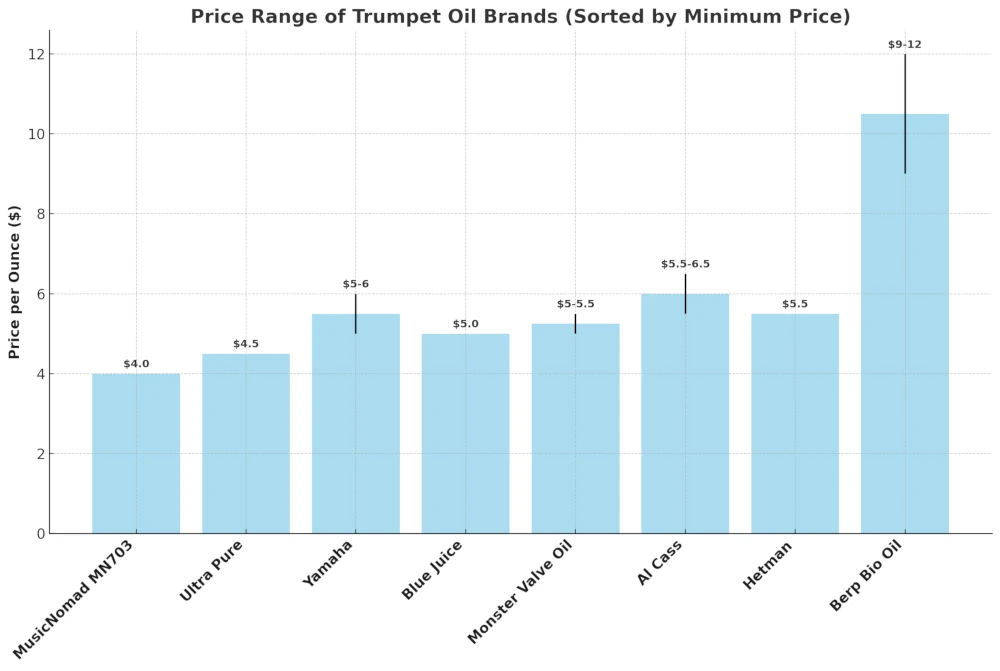
How to apply trumpet valve oil properly
Oiling your trumpet isn’t just about pouring some oil and hoping for the best. Proper application ensures your trumpet performs at its best and extends its lifespan.
Cleaning the trumpet before application
Before you even think about oiling, give your trumpet a good clean (related: How to Clean Your Trumpet). Remove any dirt, grime, or old oil residues.
Some oils won’t mix properly with others, which can result in a gunky buildup or residue that can lead to sticky or slow valves. A good cleaning ensures the new oil can do its job effectively.
Step-by-step guide to oiling your trumpet
There are a couple ways to oil trumpet valves. Here’s the method I prefer:
- Tip the trumpet on it’s side with the finger buttons slightly downward and the valve caps slightly upward.
- Add one or two drops of oil through the hole in the middle of each valve cap so it drips down the inside of each valve casing.
- Turn the trumpet over and work the valves several times to help distribute the oil around the casings and pistons.
This method helps limit the wear and tear on your valves because you’re not pulling them out or risking any damage when you re-insert them.
Now below is a brief rundown of how most trumpet players seems to do it. And I’d suggest only using this method if you’ve tried my preferred method above and the valves are still sticky.
- Remove the valve: Gently unscrew and take out the valve from the trumpet.
- Wipe it clean: Using a lint-free cloth, wipe off any old oil or residues.
- Apply the oil: Place a few drops of valve oil on the valve. Ensure you cover all sides.
- Reinsert the valve: Carefully place the valve back into its casing. Make sure it’s aligned correctly.
- Test the action: Press the valve a few times to ensure smooth movement.
How often should you apply valve oil?
The frequency of oiling depends on your playing habits and the type of oil you use. But a good rule of thumb is to oil your trumpet once a week or whenever the valves feel sluggish.
Alternative solutions for sticky valves
While valve oil is the go-to solution for most trumpet players, there are times when you might need to explore alternative solutions, especially if you’re dealing with particularly stubborn sticky valves.
Cleaning methods
Sometimes the culprit behind sticky valves is simple dirt or grime buildup. Before reaching for alternative lubricants, give your trumpet a thorough cleaning. Soak it in warm soapy water, use a valve brush to gently scrub the valves, and rinse thoroughly. This can often resolve minor sticking issues.
Valve oil alternatives and when to use them
While specialized trumpet valve oils are always recommended, in a pinch, there are a few alternatives:
- Sewing machine oil: It’s thin and can provide temporary lubrication.
- Key oil: Used for woodwind instruments, it can work as a temporary solution.
- Gun oil: Only use this if you’re really in a bind. It’s thicker and might not provide the smooth action of dedicated valve oils.
Remember, these are just temporary fixes. Always revert to a dedicated trumpet valve oil as soon as possible.
When to consult a professional
If you’ve tried cleaning and oiling your trumpet and the valves are still sticky, it might be time to take your horn to a professional.
There could be underlying issues, like valve misalignment or damage, that require expert attention. And attempting to reshape valves or casings where there is deformation can make problems worse.
FAQs
Navigating the world of trumpet maintenance can be daunting, especially with so much conflicting advice out there. Let’s address some of the most common questions.
Can I mix different brands of valve oils?
It’s generally not recommended. Different brands might have varying viscosities and ingredients, which can lead to inconsistent performance. Stick to one brand at a time for the best results.
How long does a bottle of valve oil typically last?
This depends on your playing habits and the oil’s longevity. For an average player oiling their trumpet once a week, a standard bottle can last anywhere from 6 months to a year.
Can I use valve oil for other instruments?
While trumpet valve oil is formulated specifically for trumpets, it can often be used for other brass instruments like tubas or trombones. However, always check the manufacturer’s recommendations to be on the safe side.
Is there a shelf life for valve oils?
Most valve oils have a long shelf life, especially synthetic ones. However, if the oil smells off or has changed in consistency, it’s best to replace it.

Environmental considerations
In our quest for the perfect sound, it’s essential not to forget our responsibility to the planet.
Eco-friendly trumpet valve oils
With growing environmental awareness, many brands now offer eco-friendly valve oils. These oils are biodegradable and come in recyclable packaging, making them a great choice for the environmentally conscious player.
Disposal of old or unused valve oils
Don’t just pour old or unused valve oil down the drain. It can harm the environment. I know a one or two ounce bottle may not seem like much of an environmental threat. But when possible, check with local waste disposal facilities about the proper disposal methods.
Wrapping up: The art of trumpet maintenance
Maintaining your trumpet isn’t just about ensuring it plays well; it’s about respecting the instrument and the music it produces. A well-maintained trumpet not only sounds better but also lasts longer, providing years of musical joy.
The holistic approach to trumpet care
Beyond just oiling the valves, consider a holistic approach to trumpet care. This includes regular cleaning, checking for any dents or damages, and ensuring the mouthpiece is clean and free from obstructions. It’s about understanding that every part of the trumpet, no matter how small, plays a role in its overall performance.
The relationship between regular maintenance and performance
A regularly maintained trumpet doesn’t just play better; it allows the player to perform better. Sticky valves or a clogged mouthpiece can hinder performance, making it harder to hit the right notes or maintain the correct pitch. By ensuring your trumpet is always in top condition, you’re also ensuring that you can give your best performance every time.
Additional resources and further reading
For those eager to dive even deeper into the world of trumpet care and maintenance, there are plenty of resources available.
Books on trumpet maintenance
There are several comprehensive books dedicated to brass instrument care. These books offer in-depth insights, tips, and tricks that can be invaluable for both beginners and seasoned players.
Here are my two main recommendations if you’re looking for info on trumpet maintenance and repair:
- Complete Guide to the Maintenance and Repair of Band Instruments – This book provides a comprehensive guide to the maintenance and repair of band instruments with attention paid to trumpets, in particular.
- Brass Instrument Manual: How to buy, maintain and set up your trumpet, trombone, tuba, horn and cornet – This manual caters to trumpet, trombone, tuba, horn, and cornet players. It presents a step-by-step guide with detailed illustrations on how to maintain and repair brass instruments. It also explains the workings of the instrument and the effects of different components.
Online communities for trumpet enthusiasts
Joining online forums or communities can be a great way to connect with fellow trumpet players. Share experiences, ask questions, and get advice from players from all over the world. I would personally recommend the following:
- Reddit – r/trumpet is a great forum-style resource. That community is approaching 40k members as of this writing.
- Trumpet Herald – don’t let the dated look of the website put you off! My personal favorite in this list, this trumpet forum is one of the most established and active on the internet and is full of tips and advice for trumpet players—novice and professional alike.
- Trumpet Boards – another forum dedicated to sharing knowledge about trumpets, this is another great resource where you can actively get advice, offer advice and engage a like minded community of enthusiasts.
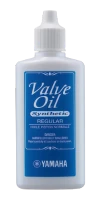
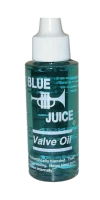
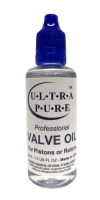
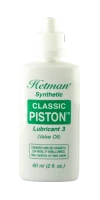
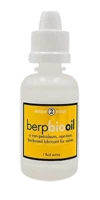
Leave a Reply